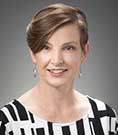|

|
|
The views expressed on this page are soley
those of the author and do not
necessarily represent the views of County
News Online
|
 |
Suicide is not about dying
By Melissa Martin, PhD
Individuals that die by suicide do not want to die, they want the
excruciating mental pain in their brain to stop. They want the
feelings of hopelessness, helplessness, anguish, and despair to go away.
Why Do People Attempt Suicide?
“A suicide attempt is a clear indication that something is gravely
wrong in a person’s life. No matter the race or age of the person; how
rich or poor they are, it is true that most people who die by suicide
have a mental or emotional disorder.” The most common underlying
disorder is depression, 30 percent to 70 percent of suicide victims
suffer from major depression or bipolar
disorder.www.mentalhealthamerica.net.
Suicide is not a mental disorder, but one of the most important causes
of suicide is mental illness – most often major depression or bipolar
disorder.
What is Depression?
“Depression is a mood disorder that causes a persistent feeling of
sadness and loss of interest. Also called major depressive disorder or
clinical depression, it affects how you feel, think and behave and can
lead to a variety of emotional and physical problems. You may have
trouble doing normal day-to-day activities, and sometimes you may feel
as if life isn't worth living.”www.mayoclinic.org.
An episode of depression can be triggered by a stressful life event
such as death of a loved one, a major change in finances, loss of
employment, divorce or separation, alcohol or drug problem,
experiencing trauma or a crisis, and major life changes.
Genetic Factors
How do we know that genes play a role in causing depression?
“Scientists look at patterns of illness in families to estimate their
“heritability,” or roughly what percentage of their cause is due to
genes. To do this we find people with the disease who have a
twin, and then find out whether the twin is also ill. Identical
(monozygotic) twins share 100% of their genes, while non-identical
(“fraternal” or dizygotic) twins share 50% of their genes. If
genes are part of the cause, we expect a patient’s identical twin to
have a much higher risk of disease than a patient’s non-identical
twin. That is the case for major depression. Heritability
is probably 40-50%, and might be higher for severe depression.”
www.med.standard.edu.
Non-genetic Factors
Others factors in the environment can also increase the risk of
depression: childhood abuse, disease and illness, traumatic
experiences, and severe life stressors.
The Adverse Childhood Experiences Study
Adverse Childhood Experiences (ACEs) is the term used to describe all
types of abuse, neglect, and other potentially traumatic experiences
that occur to people under the age of 18.
There are 10 types of childhood trauma measured in the ACE Study. Five
are personal — physical abuse, verbal abuse, sexual abuse, physical
neglect, and emotional neglect. Five are related to other family
members: a parent who’s an alcoholic, a mother who’s a victim of
domestic violence, a family member in jail, a family member diagnosed
with a mental illness, and the disappearance of a parent through
divorce, death or abandonment.
What’s your ACE score? Visit www.acestoohigh.com/got-your-ace-score/ for more information.
Treatment for Depressive Disorders
Major depressive disorder and bipolar disorder are the two major mood disorders.
Talk to your family practitioner and request a referral to a
psychiatrist, psychologist, or mental health therapist. Contact your
insurance company to explore your coverage and what providers are in
network. Individuals without health insurance can contact their local
community health center and ask about a sliding scale fee for services.
The takeaway from this column is to have more discussions about
depressive disorders. Treatment is available. There is hope for
individuals diagnosed with major depression and bipolar disorder. There
is hope for individual with suicidal thoughts and plans.
Melissa Martin, Ph.D, is an author, columnist, educator, and therapist. She lives in Southern Ohio.
|
|
|
|

